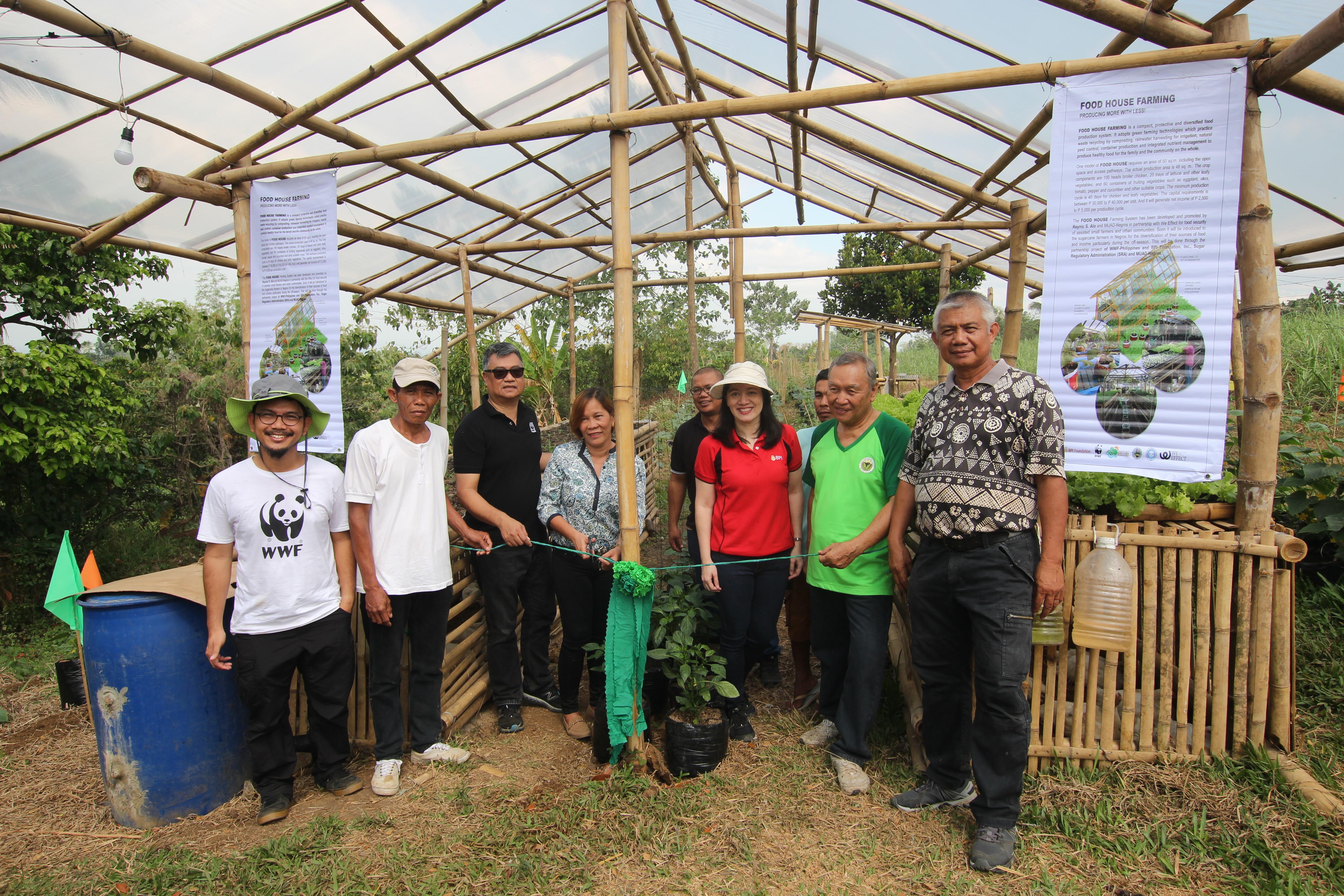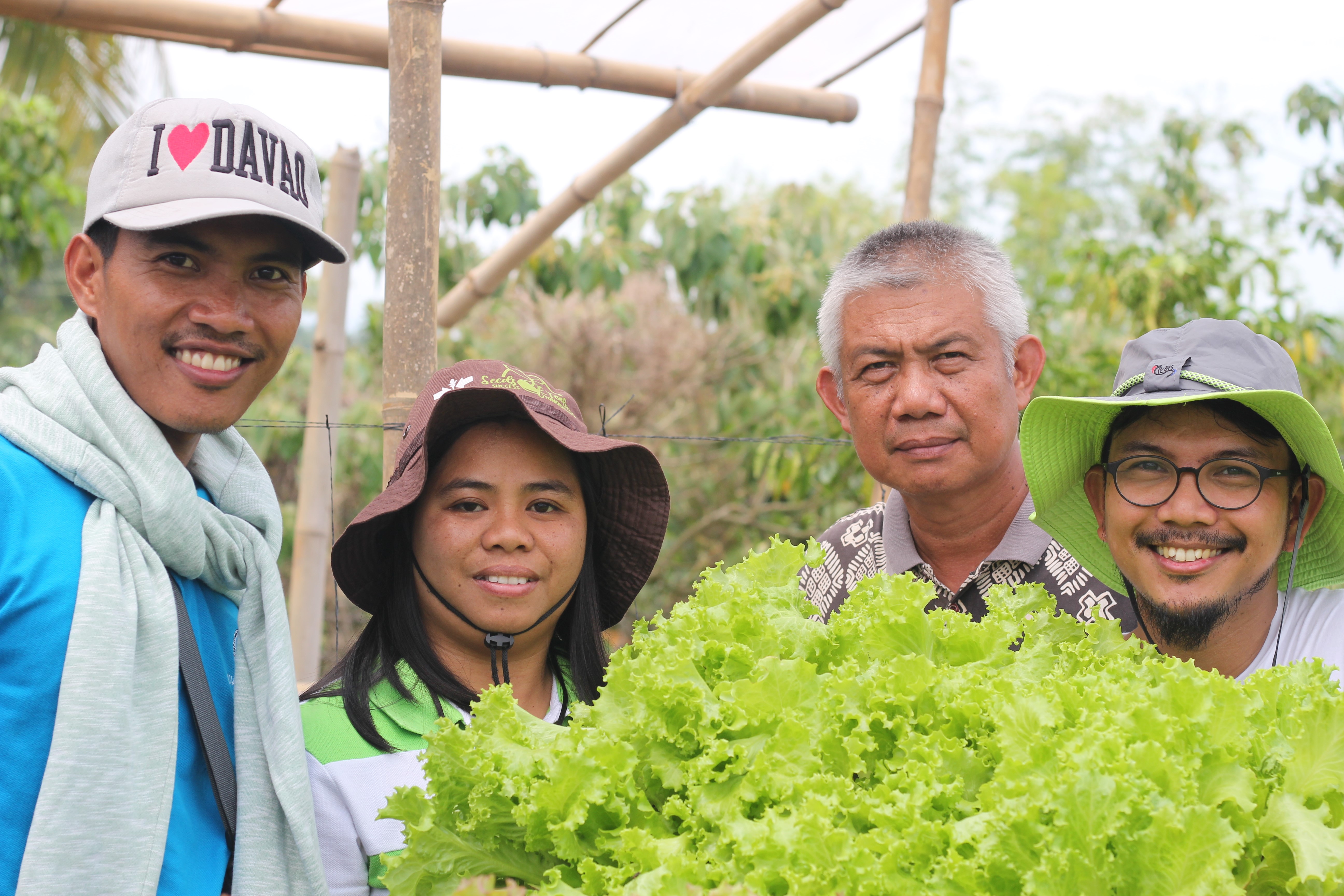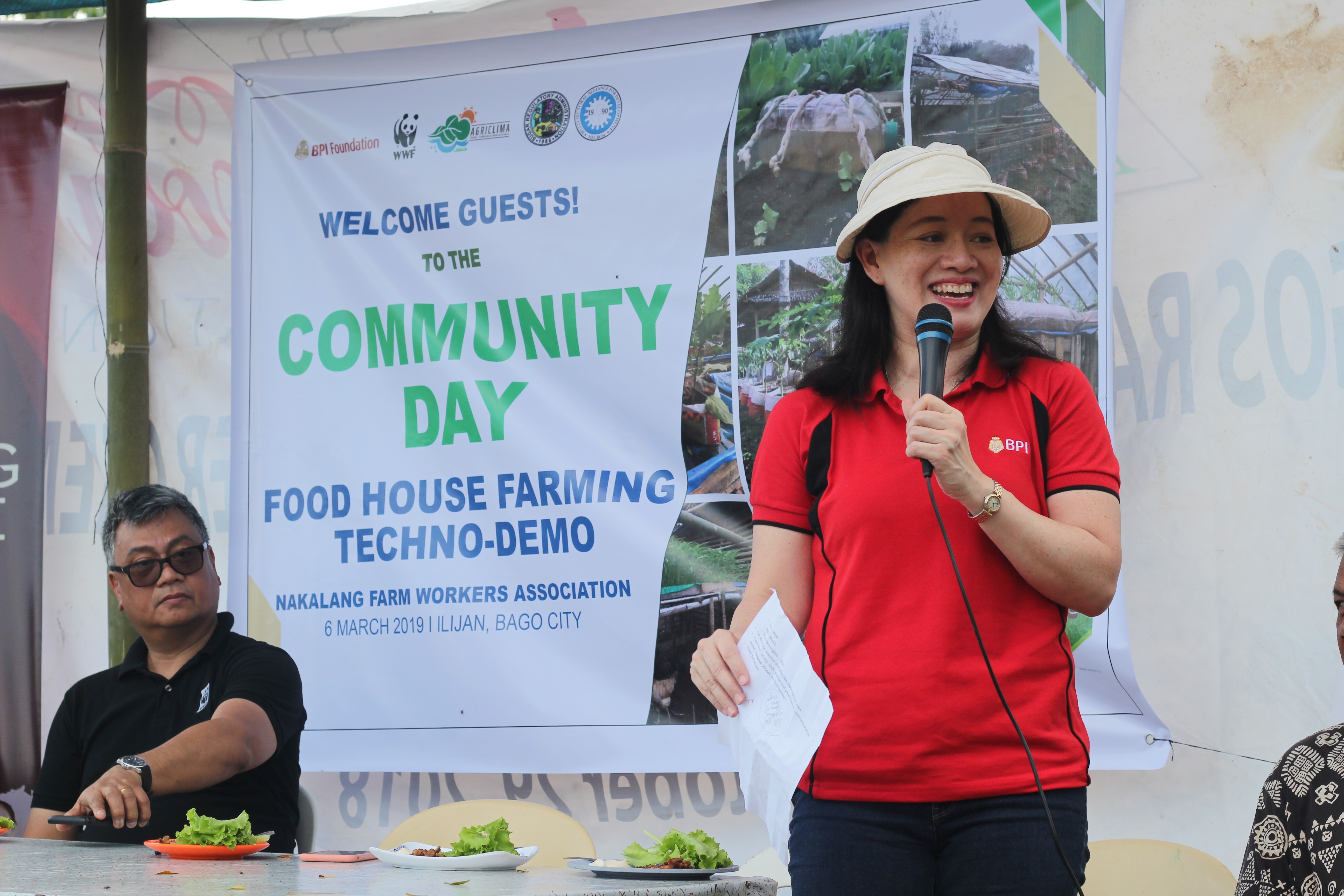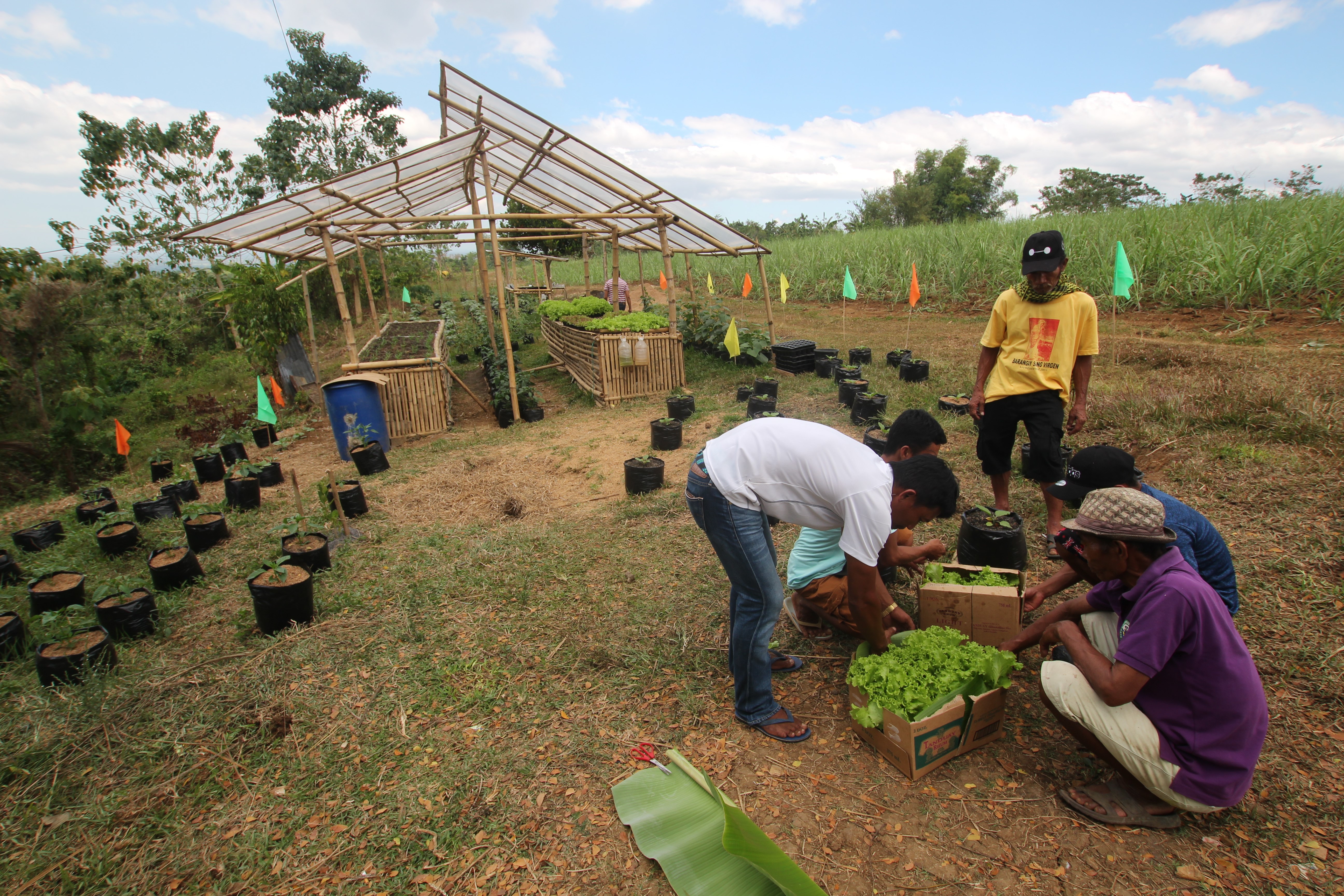WWF-Philippines, BPI Foundation, SRA Inaugurate Innovative Food Houses in Negros Occidental

From left to right: Monci Hinay, WWF-Philippines Project Manager, Donnie Sanchez, Chairman of Nakalang Farm Workers Association (NAFWA), Joel Palma, President and CEO of WWF-Philippines, Helen Lobaton of the Sugar Regulatory Administration (SRA), June Bagolabos, WWF-Philippines Site Coordinator, Maricris San Diego, Executive Director of BPI Foundation, Inc., Danilo Malunes, President of MUAD-Negros and Reynic Alo, Executive Director of MUAD-Negros, cut the ribbon to officially inaugurate the food house in the community of Ilijad. Photograph © Alo Lantin / WWF-Philippines
The 6th of March, 2019, saw the inauguration of the first eight food houses to be constructed under the Climate-Proofing Agricultural Landscapes (AgriClima) project of the World Wide Fund for Nature Philippines (WWF) Philippines, BPI Foundation, Inc. and the Sugar Regulatory Administration (SRA). The food houses were constructed in the community of Ilijad with the support of project partners, the Federation of Multi-Sectoral Alliance for Development Negros (MUAD-Negros) and Nakalang Farm Workers Association.
AgriClima is WWF-Philippines’ effort, in partnership with BPI Foundation, Inc., to ensure the sustainability of the Ara-al-Najalin-Marayo Watershed of Negros Occidental. The project utilizes a landscape approach in securing resources, meaning all aspects of the watershed, both physical and human, are addressed for the sake of its conservation. An arrangement between local government units and private bodies is being made to protect the watershed, while various opportunities are being pursued to help local small-scale farmers become climate-smart and resilient. The food houses were constructed as part of this latter effort, and are intended to help bolster and diversify the income of farmers.

From left to right: Aldemar Jumawas of MUAD-Negros, April Marie Libo-on of East West Seed Bank, Reynic Alo from MUAD-Negros and Monci Hinay from WWF-Philippines stand by a planter of lettuce. Photograph © Alo Lantin / WWF-Philippines
“This really is a sustainable way of doing farming,” said Reynic Alo, Executive Director of MUAD-Negros whose agricultural research resulted in the food houses that were inaugurated. “Through the incorporation of methods such as vertical farming, crop diversification, and animal cultivation, the food houses reduce the amount of land and resources needed by farming communities while allowing them to have produce for sale during lean seasons. The introduction of crops not normally grown in the watershed grants healthier, more well-rounded diets to communities,” he further explained.
According to Alo, the food houses are proof that livelihood does not solely rely on the cultivation of big lands and that food houses are more environmentally-friendly. “If you don’t cultivate big land, you keep the trees. You keep the trees, and the water returns to the ground, and you protect the environment,” he remarked.
Present at the inauguration was Maricris San Diego, BPI-Foundation Executive Director, Joel Palma, President and CEO of WWF-Philippines, Helen Lobaton of the SRA, Dan Malunes and Reynic Alo from MUAD-Negros, and Donnie Sanchez, Chairman of Nakalang Farm Workers Association (NAFWA). A ribbon-cutting ceremony was held to symbolically inaugurate the food houses before key speeches were given highlighting the importance of the partnership between WWF-Philippines and BPI Foundation, Inc. and the benefits the food houses offer to the communities of Negros Occidental.

Maricris San Diego, Executive Director of BPI Foundation, Inc., addresses community members and AgriClima partners at the food house inauguration ceremony. Photograph © Alo Lantin / WWF-Philippines
“All of us rely on water and on the land, and all of us will feel the effects if something happens to those resources. If not just for our lives, but for our families and our communities,” stated San Diego. BPI Foundation, Inc. has been partners with WWF-Philippines since 2008 with the Climate Savers Club. Together with the SRA and WWF-Philippines, BPI-Foundation, Inc. is working to bring food security to Negros. “We would like you to know that we will help, and that we will always be by your side as your partners,” she continued.
San Diego’s sentiment was echoed by Palma who extended his thanks to the project partners and to the community for the construction of the food house. “Let’s come together to help each other. We’ll be able to do more and help each other more. Our whole country needs our farmers, because they are responsible for the food that we eat every single day. We are very thankful for them,” he said.

Boxes of lettuce are packed, freshly harvested from the newly-inaugurated food house in the farming community of Ilijan. Photograph © Alo Lantin / WWF-Philippines
Should the food houses prove successful and profitable, more may be constructed in the coming years. With the first batch now constructed and rolled out, efforts continue in the alleviation of the plight of the farmers of the Ara-al-Nahalin-Marayo Watershed in the face of changing climates.
